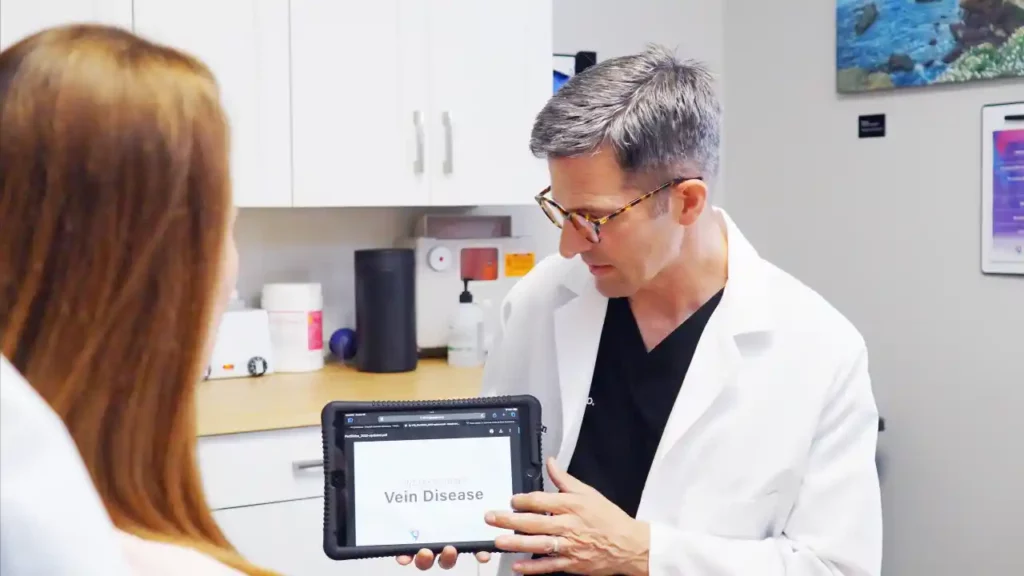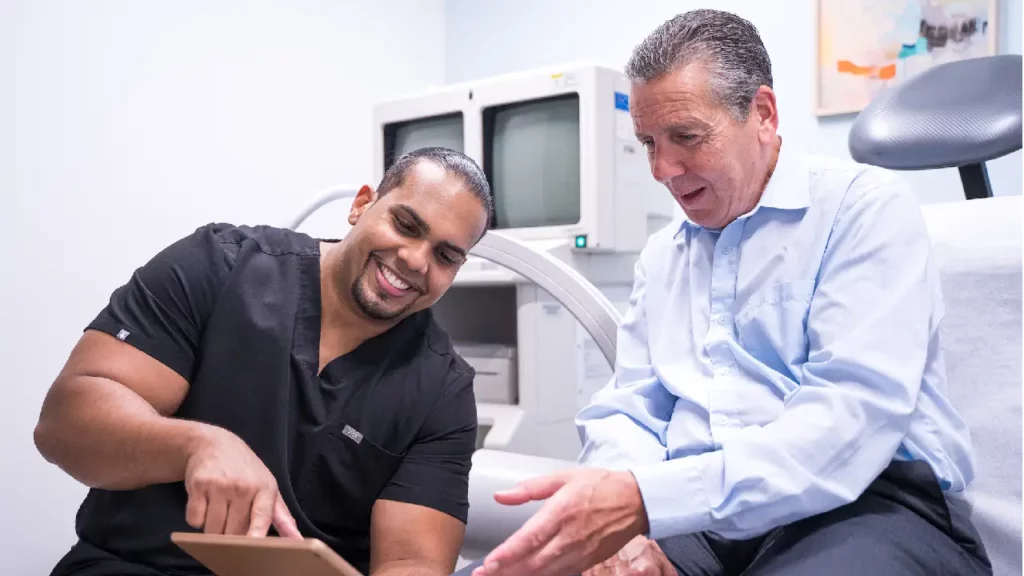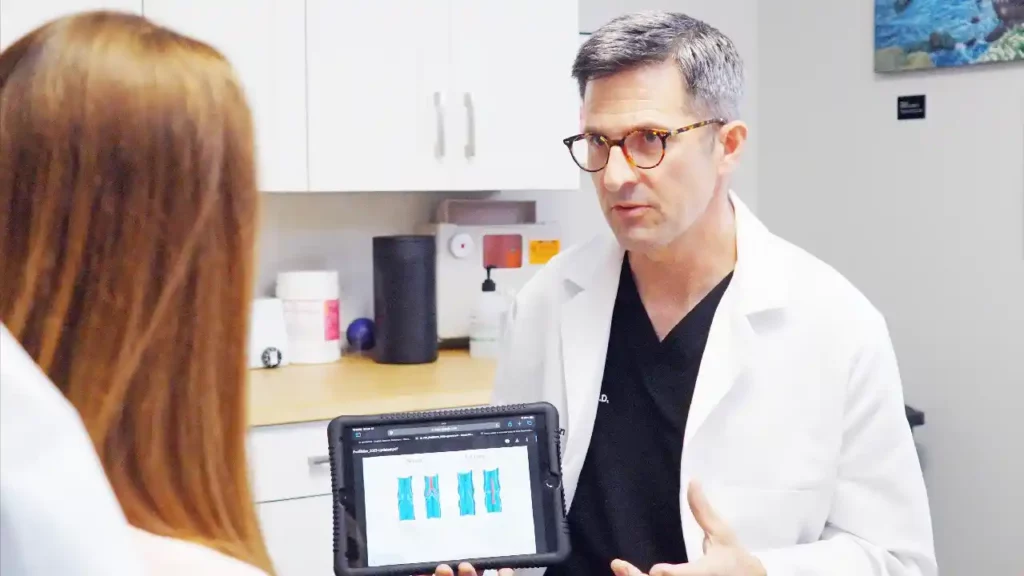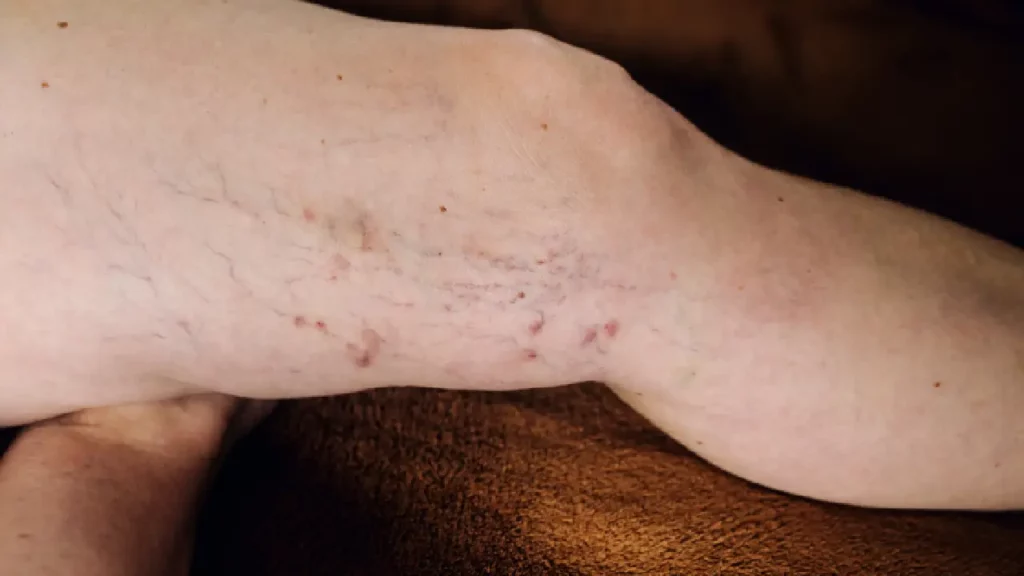Living with varicose veins can be challenging, but with the right strategies and support, you can manage the symptoms and improve your quality of life. At Vein Doctor for Women, our board-certified vein doctors are dedicated to providing you with personalized care and effective treatments. Here are some of the top strategies we recommend for managing varicose veins.
Understanding Varicose Veins
It’s essential to understand what varicose veins are and why they occur. Varicose veins are enlarged, twisted veins that commonly appear on the legs and feet. They occur when the valves in the veins that regulate blood flow become weak or damaged, causing blood to pool and veins to swell. This can lead to symptoms like aching, swelling, and discomfort.
Tips:
- Recognize early signs like heavy legs, swelling, and visible veins to seek timely treatment.
- Factors like genetics, pregnancy, and prolonged standing or sitting can increase your risk.
- Regularly check your legs for new or worsening veins, especially if you have risk factors.

1. Maintain a Healthy Weight
One of the most effective strategies for managing varicose veins is maintaining a healthy weight. Excess weight puts additional pressure on your veins, which can exacerbate varicose vein symptoms. By keeping your weight within a healthy range, you can reduce this pressure and improve blood flow. We recommend incorporating a balanced diet rich in fruits, vegetables, whole grains, and lean proteins and engaging in regular physical activity.
Tips:
- Focus on nutrient-dense foods to maintain a healthy weight.
- Be mindful of portion sizes to avoid overeating.
- Incorporate at least 30 minutes of moderate exercise most days of the week.
2. Exercise Regularly
Regular exercise is crucial for promoting healthy blood circulation and managing varicose veins. Activities that involve your legs, such as walking, cycling, swimming, and yoga, can help improve blood flow and strengthen the muscles that support your veins. Aim for at least 30 minutes of moderate exercise most days of the week. If you’re new to exercise or have concerns about your fitness, our team can help you develop a safe exercise plan.
Tips:
- Opt for low-impact activities like swimming or cycling to avoid excessive strain on your legs.
- Incorporate stretching exercises to improve flexibility and circulation.
- Maintain a regular exercise routine for sustained benefits.
3. Elevate Your Legs
Elevating your legs is a simple yet effective way to reduce the symptoms of varicose veins. When you elevate your legs above the level of your heart, it helps decrease the pressure in your leg veins and improves blood flow back to your heart. Try to elevate your legs several times a day for about 15 minutes each time, especially after long periods of standing or sitting.
Tips:
- Place pillows under your legs while lying down to elevate them comfortably.
- Schedule regular breaks throughout the day to elevate your legs.
- Elevate your legs before bedtime to reduce overnight swelling.
4. Wear Compression Stockings
Compression stockings are specially designed to apply gentle pressure to your legs to improve blood flow and reduce swelling. They are available in various levels of compression and can be prescribed by your vein doctor. Wearing compression stockings during the day can significantly alleviate the discomfort associated with varicose veins. At Vein Doctor for Women, we can help you determine the right type and fit of compression stockings for your needs.
Tips:
- Ensure your compression stockings fit correctly for maximum benefit.
- Wear your compression stockings every day, especially during activities that involve standing or sitting for long periods.
- Replace your stockings every 3-6 months or as recommended by your vein doctor.
5. Avoid Prolonged Standing or Sitting
Long periods of standing or sitting can worsen varicose vein symptoms by impairing blood circulation. If your job or daily routine requires you to stand or sit for extended periods, try to take regular breaks to move around and change your position. When sitting, avoid crossing your legs, as this can restrict blood flow. If you must stand for long periods, shift your weight from one leg to the other or do simple calf raises to promote circulation.
Tips:
- Use alarms or reminders to prompt you to move every 30 minutes.
- If possible, use a standing desk or take short walking breaks.
- Practice leg exercises like ankle rotations or calf raises while sitting.
6. Stay Hydrated
Staying well-hydrated is essential for maintaining healthy blood circulation and vein function. Dehydration can thicken your blood, making it more difficult for your veins to pump blood back to your heart. Aim to drink at least eight glasses of water a day, and increase your intake if you are physically active or live in a hot climate.
Tips:
- Keep a water bottle with you to encourage regular drinking.
- Add fruits or herbs to your water for added flavor and motivation.
- Use apps or journals to track your daily water consumption.
7. Follow a Vein-Friendly Diet
Certain foods can help improve vein health and reduce varicose vein symptoms. A diet rich in fiber, antioxidants, and flavonoids can support vein function and prevent constipation, which can put pressure on your veins. Include plenty of fruits, vegetables, whole grains, nuts, seeds, and legumes in your diet. Foods high in vitamin C, such as citrus fruits, bell peppers, and broccoli, can also strengthen vein walls and improve circulation.
Tips:
- Incorporate fiber-rich foods like oats, beans, and whole grains to prevent constipation.
- Eat plenty of berries, leafy greens, and nuts for their antioxidant benefits.
- Include sources of healthy fats, such as avocados and olive oil, to support overall vein health.
8. Explore Medical Treatments
For more severe varicose veins or persistent symptoms, medical treatments are necessary. Lifestyle changes can reduce your symptoms, but they can’t treat the root cause of your vein problems. At Vein Doctor for Women, we offer a range of minimally invasive procedures to treat varicose veins, including:
- Sclerotherapy: This involves injecting a solution into the varicose vein, causing it to collapse and fade over time.
- Endovenous Laser Therapy (EVLT): A laser fiber is inserted into the vein, delivering energy that causes the vein to close and be absorbed by the body.
- Radiofrequency Ablation (RFA): Similar to EVLT, RFA uses radiofrequency energy to heat and close the affected vein.
- VenaSeal: This treatment uses a medical adhesive to seal the varicose vein, which is then gradually absorbed by the body.
9. Stay Consistent with Follow-Up Care
Managing varicose veins is an ongoing process, and regular follow-up care is essential for monitoring your condition and preventing complications. At Vein Doctor for Women, we recommend regular check-ups to assess your vein health and adjust your treatment plan as needed. Staying consistent with follow-up appointments ensures that any changes in your condition are promptly addressed, helping you maintain optimal vein health.
Tips:
- Keep track of your follow-up appointments and make them a priority.
- Inform your vein doctor of any new or worsening symptoms during follow-up visits.
- Follow your vein doctor’s advice regarding lifestyle changes and treatment adjustments.
10. Embrace a Holistic Approach
Managing varicose veins is not just about addressing the physical symptoms; it also involves taking care of your overall well-being. Stress can negatively impact your vascular health, so it’s important to incorporate stress-relief practices into your routine. Techniques such as deep breathing exercises, meditation, and mindfulness can help reduce stress and improve your overall health.
Tips:
- Incorporate mindfulness or meditation practices into your daily routine.
- Explore relaxation techniques like deep breathing, progressive muscle relaxation, or yoga.
- Strive for a healthy work-life balance to minimize stress.
11. Seek Support from Your Vein Doctor
At Vein Doctor for Women, we understand that living with varicose veins can be challenging. Our compassionate and experienced vein doctors are here to support you every step of the way. Whether you need advice on lifestyle changes, assistance with choosing the right compression stockings, or medical treatment options, we are committed to providing personalized care that meets your unique needs.
Tips:
- Don’t hesitate to contact your vein doctor with any questions or concerns.
- Consider joining support groups for individuals with varicose veins to share experiences.
- Keep yourself updated with the latest information and treatments for varicose veins.
Varicose Vein Management With Vein Doctor
Living well with varicose veins involves a combination of lifestyle changes, self-care practices, and medical treatments. By following the strategies recommended by your vein doctor, you can effectively manage your symptoms and improve your quality of life. At Vein Doctor for Women, we are dedicated to helping you achieve optimal vein health and well-being. If you have any questions or need further assistance, don’t hesitate to schedule a consultation with us.
